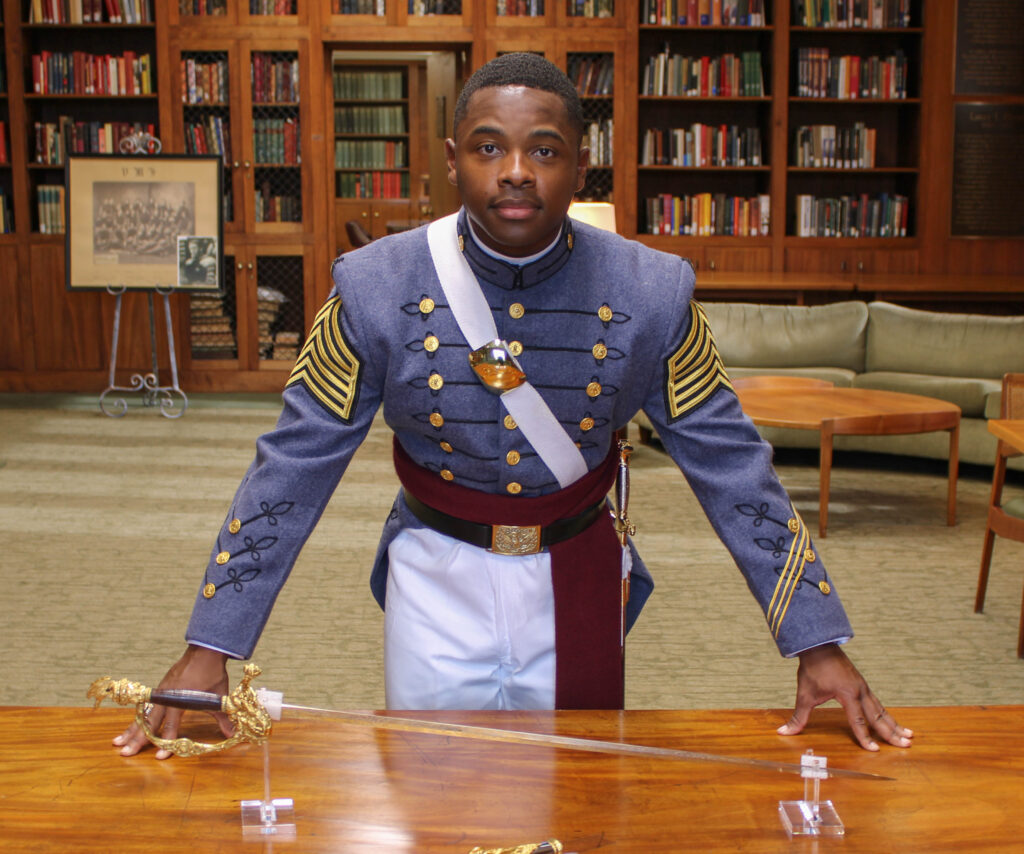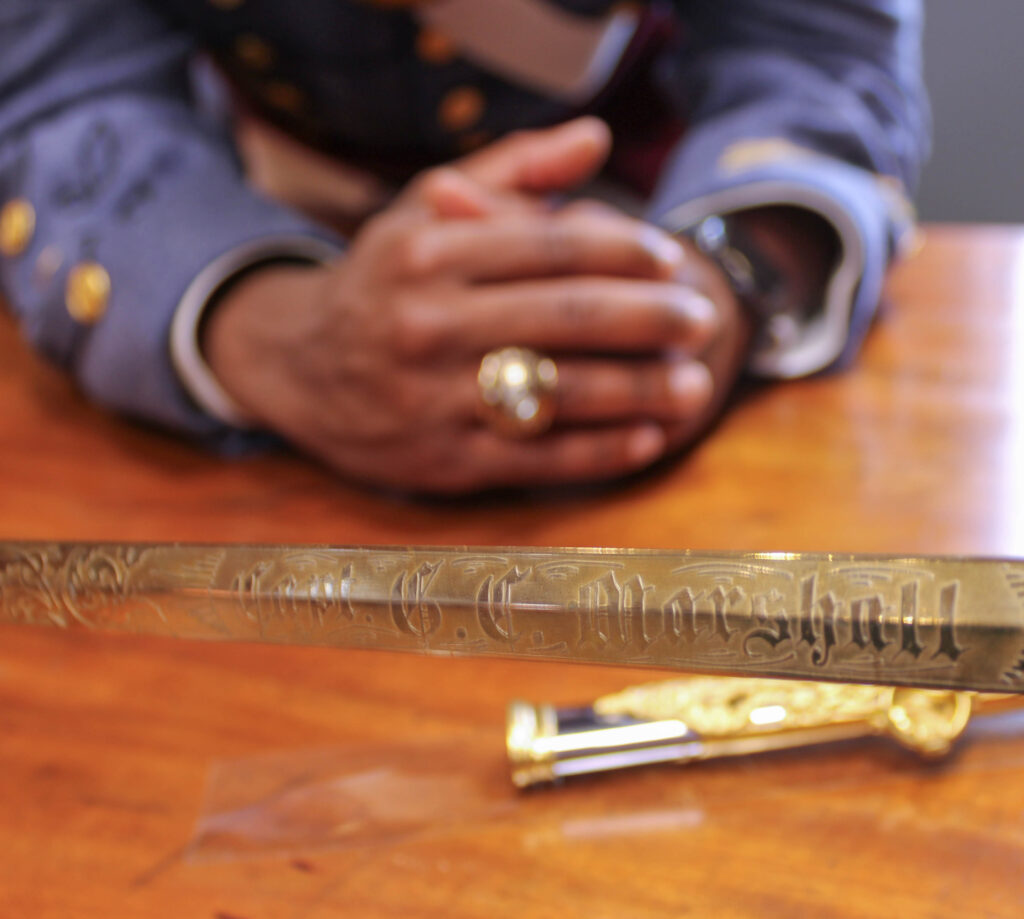Five-Star Spotlight is an ongoing interview series with the researchers, supporters, interns, volunteers, and leaders who make the George C. Marshall Foundation possible.
In this installment, Director of Communications and Multimedia Glen J. Carpenter talks with Cadet Mark Shelton II ’24, regimental commander of the corps of cadets at the Virginia Military Institute, about Marshall’s relevance to young leaders today.
Glen: Can you tell our readers a little bit about yourself?
Cadet Shelton: My name is Mark Shelton II. I am a computer science major with a minor in cyber security. I’m from Stafford, Virginia, and am a four-year athlete (football) here at the Virginia Military Institute. I’m also the cadet first captain or regimental commander of the corps of cadets this year. After graduation, I plan on commissioning into the US Army as a cyber officer.
Glen: For those who may not know, could you talk about what being regimental commander entails?
Cadet Shelton: First of all, it’s a great honor and position to hold and something I don’t take lightly. The regimental commander is the highest-ranking cadet in the corps of cadets here at VMI. He or she is responsible for everything the corps does and fails to do. They are the representative or the voice of the corps and ensures that the needs of the corps are met. The regimental commander reports directly to the commandant in all matters and works with his staff to ensure that the corps functions efficiently. The regimental commander leads the corps in parades and other ceremonial events and sets the goals and objectives for the corps for that academic year. The regimental commander maintains and enforces standards, discipline and conduct for the corps, and oversees ratline activities as that occurs.
Glen: What does General George C. Marshall mean to a VMI cadet in 2024?
Cadet Shelton: I believe General Marshall was the ultimate citizen-soldier, and the mission of VMI is to produce citizen-soldiers. I believe that George C. Marshall represents the characteristics and qualities that each cadet at VMI strives to embody and apply in their own lives as cadet leaders as we grow and develop ourselves.
Glen: Have you drawn on any lessons from General Marshall’s life or career in your time at VMI?
Cadet Shelton: Yes, I have. Throughout my cadetship, I’ve been eager to learn about George C. Marshall and I’ve stopped by the Foundation more than a couple of times. I’ve tried to learn the lessons that he learned here at VMI and throughout his career—lessons of honor, visionary leadership, selfless service, responsibility, and duty—and try to figure out how I can apply those in my own life.
Glen: What’s one lesson that you would like other young leaders to take from Marshall’s example?
Cadet Shelton: So, something that I think others, young leaders especially, should learn or at least understand is that no matter where you are in life, no matter your age, no matter your position, your rank, or your title, you are capable of having a positive impact on someone, your organization and even the world. Marshall did a really good job with that. It was through his selfless service and duty to the Army and to the country that he was able to leave a positive impact and change the course of history. That has transcended through generations and has impacted our world even today. You can make an impact no matter where you are, and you should make an impact.
Glen began working at the George C. Marshall Foundation in 2018 with a background in American studies and video production. He lives in Roanoke, Virginia.


